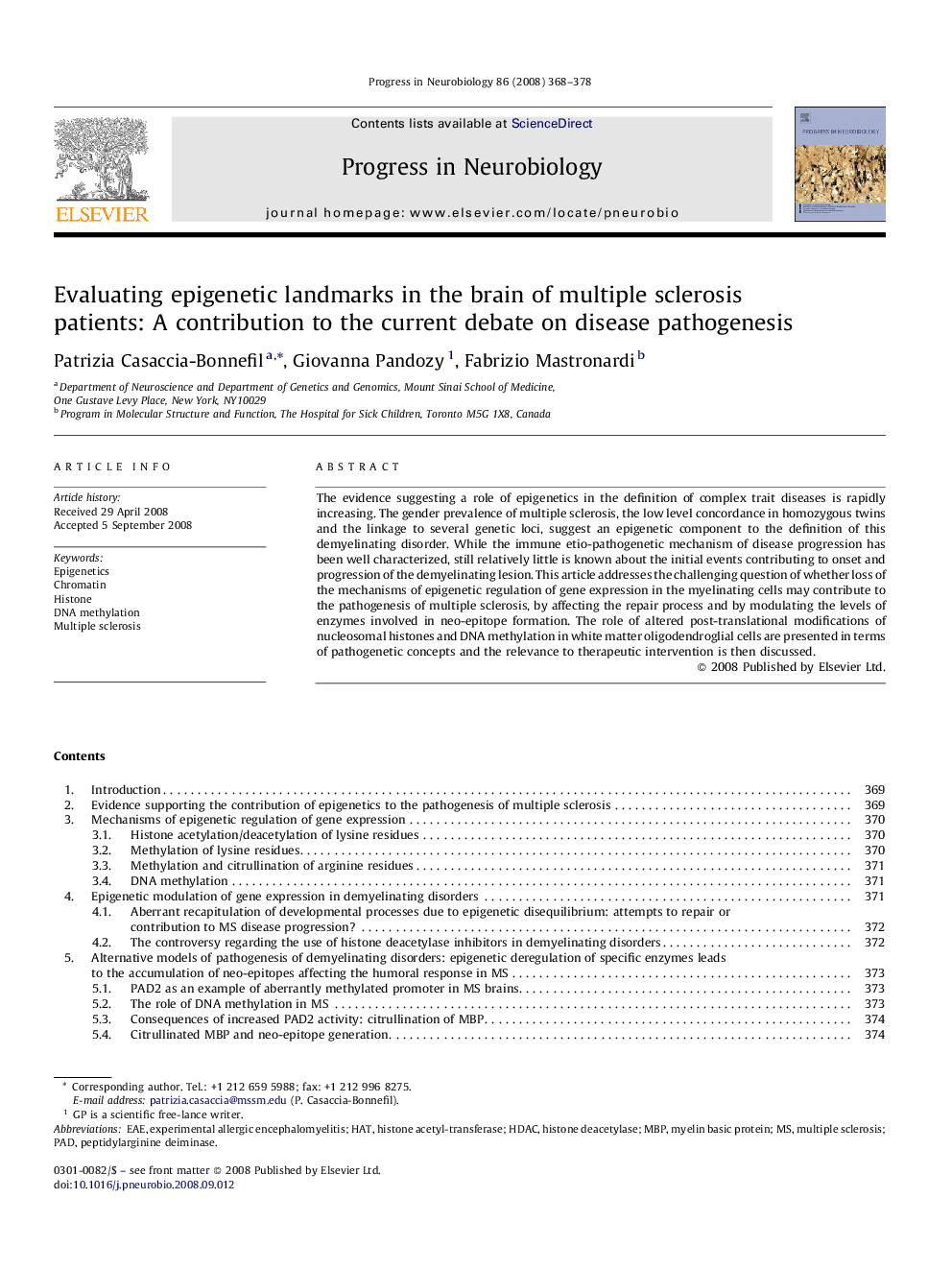| Article ID | Journal | Published Year | Pages | File Type |
|---|---|---|---|---|
| 4353850 | Progress in Neurobiology | 2008 | 11 Pages |
The evidence suggesting a role of epigenetics in the definition of complex trait diseases is rapidly increasing. The gender prevalence of multiple sclerosis, the low level concordance in homozygous twins and the linkage to several genetic loci, suggest an epigenetic component to the definition of this demyelinating disorder. While the immune etio-pathogenetic mechanism of disease progression has been well characterized, still relatively little is known about the initial events contributing to onset and progression of the demyelinating lesion. This article addresses the challenging question of whether loss of the mechanisms of epigenetic regulation of gene expression in the myelinating cells may contribute to the pathogenesis of multiple sclerosis, by affecting the repair process and by modulating the levels of enzymes involved in neo-epitope formation. The role of altered post-translational modifications of nucleosomal histones and DNA methylation in white matter oligodendroglial cells are presented in terms of pathogenetic concepts and the relevance to therapeutic intervention is then discussed.
